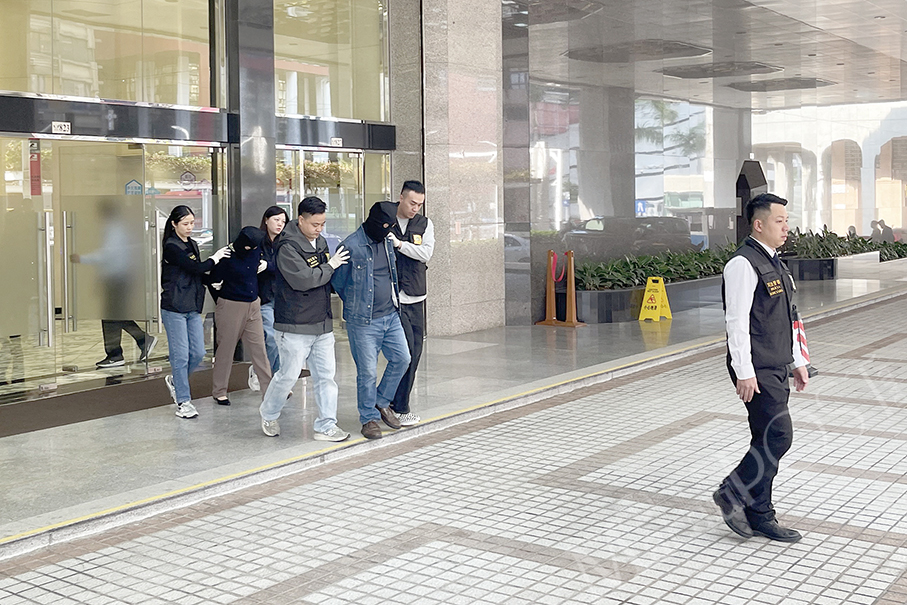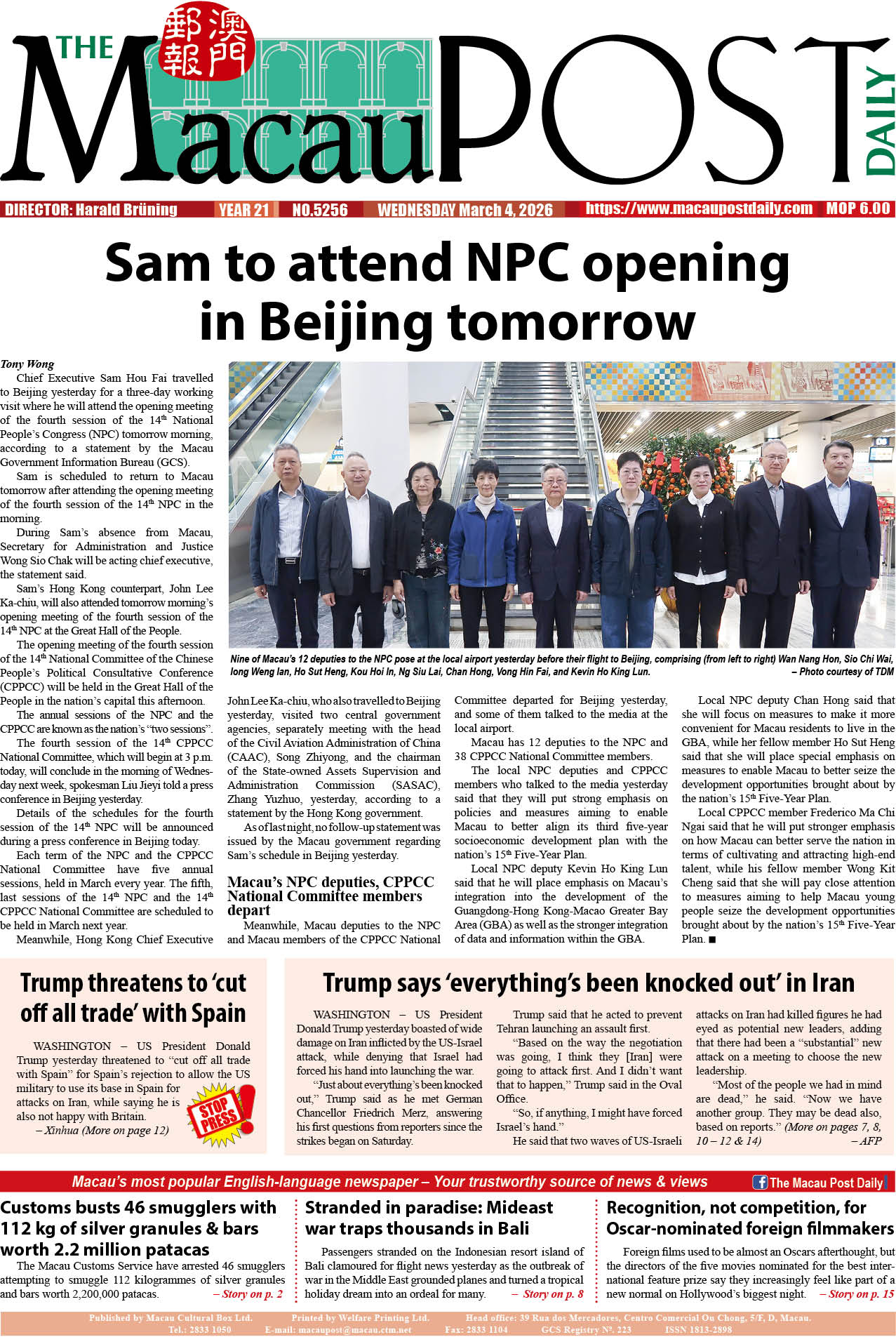The United Nations High Commissioner for Refugees (UNHCR) estimated in 2022 that the number of people forced to flee their homes due to situations such as conflict, violence and human rights violations has for the first time reached over 100 million.
UNHCR Representative in China Vanno Noupech told reporters on Wednesday that this is quite a “regrettable benchmark”, hoping to bring more attention to the issue.
During last week’s visit, which was his first to Macau, he spoke with reporters about the UNHCR’s work and his role in the mainland, as well as his background the importance of spreading information and understanding amidst the crisis.
Personal experience
Noupech, who is from Cambodia, was appointed as a UNHCR representative in China in November 2021, also covering Macau and Hong Kong. He has been posted to over 35 countries, most of them “hotspots”, and he acknowledged that “our work is very often quite dangerous”, while also dealing with emergencies, receiving sometimes tens of thousands of people within a short period of time.
He has been with the agency for 29 years, telling reporters that he has been motivated to stay as he feels “very strongly” about his job, being personally affected by forced displacement during the rule of Pol Pot’s Khmer Rouge. He is a son of a diplomat and said that he had a “relatively easy childhood”, which was spent abroad before returning to Cambodia at the age of eleven.
At around 13-years-old, Noupech found himself among the internally displaced as an unaccompanied minor (UAM) in a refugee camp in Thailand without his family. The first thing he remembers from this experience was “complete incomprehension”.
Coming from a well-off family, he recalled contradictions such as going from being forced by his mother to eat more to being hungry and needing to find food on his own, all the while “caught in the middle of fighting without knowing the reason”.
Now, as a senior official, he said that he tries to ensure that the people the UNHCR helps get beyond life-saving assistance, food and shelter. He highlighted the provision of information, which is “extremely important” to help make informed decisions to continue, return or settle down.
He noted that he feels “good to be on the other side” and tries to give back. “So many times, in the eyes of refugees we help, I remember my past as a refugee child in the refugee camp in Thailand, so I feel very strongly about it”.
Role in the mainland
His current deployment to the mainland is the second “duty station” that does not deal with emergencies, he said, adding: “It is mostly about raising awareness of our global operations, resource mobilisation” and the procurement of core relief items for their global operations.
The UNHCR, according to Noupech, works with the Chinese authorities to find durable solutions, adding that his role is also to assist the Chinese government in playing an active part in solving the global refugee situation.
He added that the agency is encouraged by the efforts of the Chinese people and its government, noting that they are making core contributions to the UNHCR regularly, through China’s global development fund. Projects in Afghanistan and Bangladesh are among those that have been funded.
Noupech said that China has also been providing political support by calling on different fora at the UN Security Council to provide more attention and assistance to the UNHCR.
Moreover, despite the COVID-19 pandemic and the communication issues that came with it, Noupech underlined: “We have quite a stable and even growing number of supporters and donors, even from Macau”, as well as double or triple donations from private sectors in Hong Kong and the mainland.
There is a growing interest in China, he said, underlining a “very rapid increase” in the number of people visiting the UNHCR websites and positive comments. His call to people is “to try to keep being informed about global refugee issues because they might affect everybody, they have an impact on almost everyone”.
Throughout the interview, Noupech emphasised the importance of going beyond just financial contributions, but maintaining an interest and trying to understand the issue more.
“It’s not only about contributing financially to us. It’s about trying to understand more, to help spread the right information. When you try to understand more, you can show compassion”. Being compassionate towards those in need such as refugees and asylum seekers, he underlined, is very important. He pointed out: “We want them [the ones being assisted] not only to survive, but to strive”.
With a growing number of contributions from Asia and a growing interest among the younger generation, Noupech said he hoped that this will be kept up for more people to gain an understanding of the issue.
UNHCR Representative in China Vanno Noupech poses after last week’s interview. – Photo: Rui Pastorin









